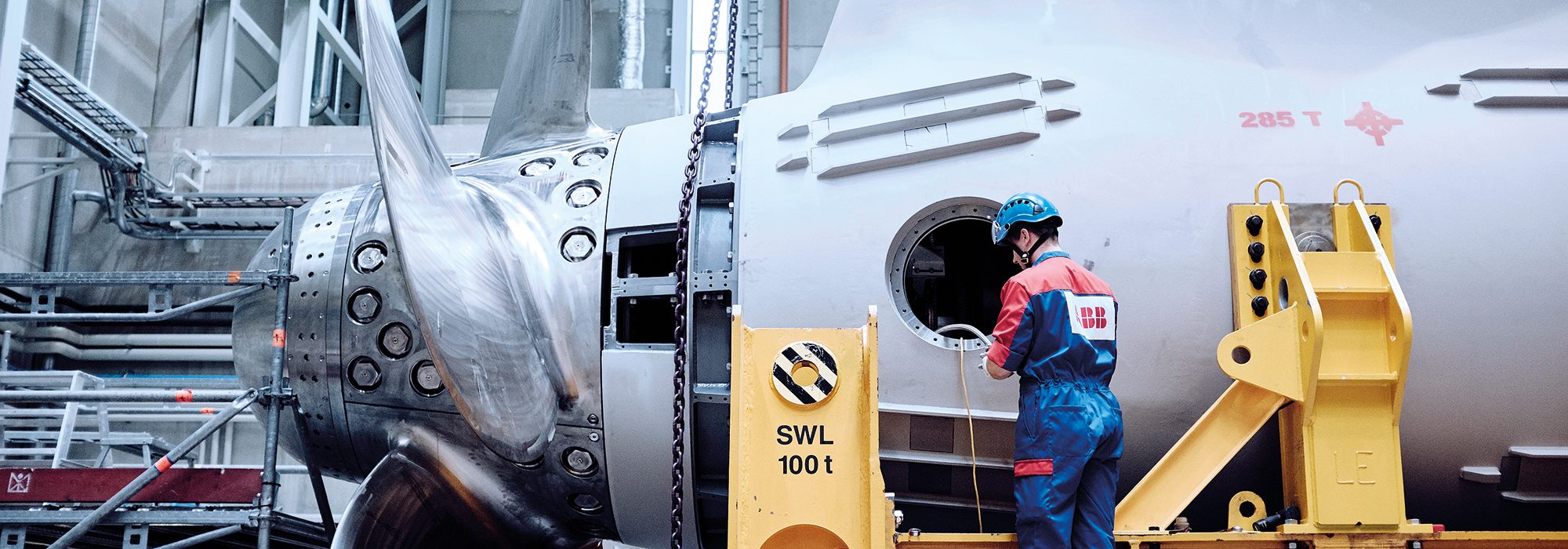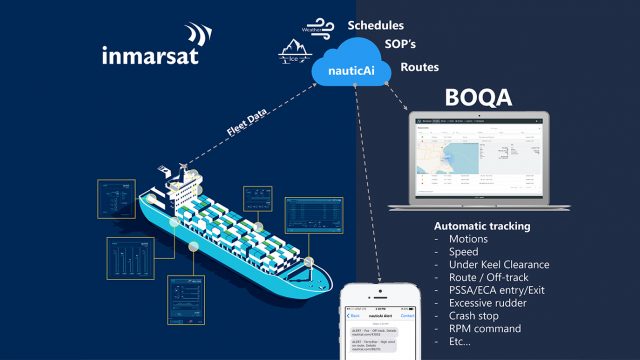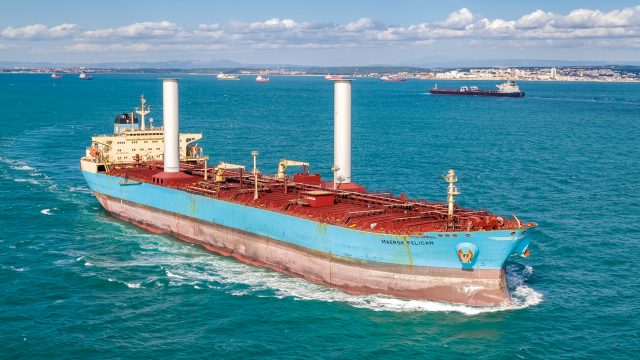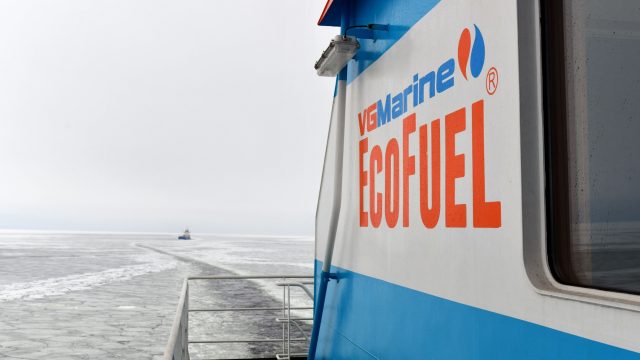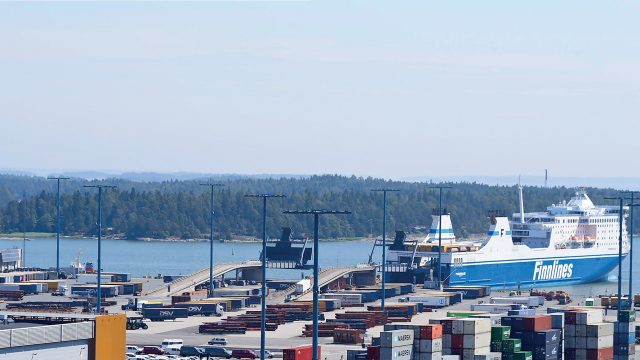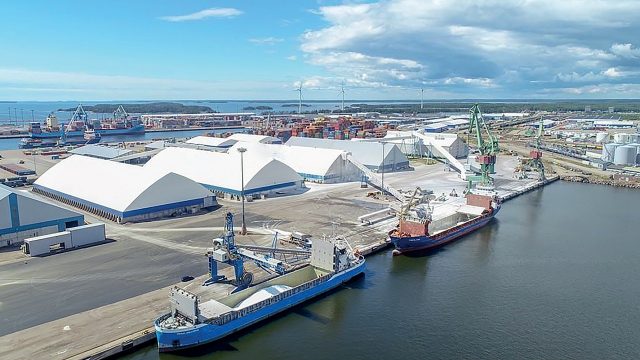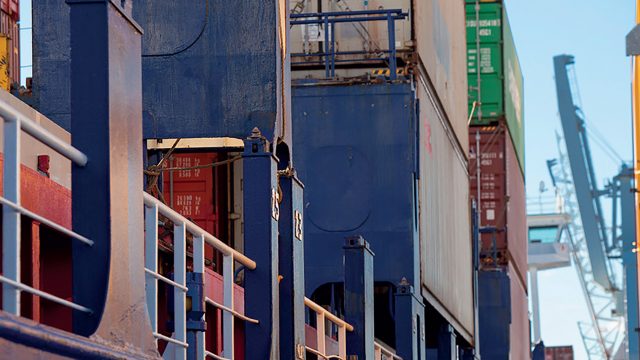Mr. Antti Ruohonen, Senior Vice President for propulsion solutions at ABB Marine & Ports discusses the future scenarios of new technologies, along with the rising demands for safe, efficient and sustainable seafaring.
How do you see digitalization evolving in 2020?
Digitization has the potential to change the face of the marine transport industry in a substantial way, from the way ships are driven, cargo is handled and even to the design of vessels at the architect’s desk.
Rising trends, such as the development of autonomous vessels, remote maintenance and proactive maintenance of vessels (industrial internet or connected devices). The growing importance
of data?
Autonomous solutions are expected to transform international shipping in the coming decades. Recent developments in sensor technology, data analytics and computing power are enabling us to increase the level of automation in ship navigation, steering and control. As vessels become more electric, digital and connected than ever before, ABB equips seafarers with existing solutions that augment their skillsets and enhance the overall safety and efficiency of operations.

Autonomous doesn’t mean unmanned. Human oversight of vessels from anywhere is achievable with today’s technologies.
What kind of solutions does ABB provide for these?
ABB AbilityTM Marine Pilot product family provides tools and functionalities to improve visibility and operability for the crew – wherever they may be located.
ABB AbilityTM Marine Pilot Control is an intelligent maneuvering and control system that enables safer, more efficient ship operations. The solution offers multiple real-time visualizations of a vessel’s surroundings presenting the ship and its environment in ways beyond the capabilities of the human eye. With its user-centric design, ABB AbilityTM Marine Pilot Control reduces the workload on automating navigational tasks and allows bridge officers to focus holistically on the overall control and positioning of the ship.
The system integrates seamlessly with existing onboard equipment, and ensures ease of installation and maintenance, adding significant “bridge-to-propeller” value for the shipowners. Automation solutions, especially ABB AbilityTM and its cost savings?
ABB AbilityTM is the company’s unified, cross-industry, digital offering — extending from device to edge to cloud — with devices, systems, solutions, services and a platform which enables customers increase productivity and lower costs. ABB AbilityTM was launched in 2017 and already offers more than 210 solutions.
Already today, shipboard sensors are routinely used as a data source to optimize vessel operations and achieve just-in-time delivery with the least energy consumed. ABB AbilityTM Collaborative Operations Centers are already harnessing cloud-based analytics to help prevent, predict and rectify remote equipment problems. Every day ABB is collecting gigabytes of data from about 1,000 connected vessels, with its shore-side experts offering support to engineers on the ship from afar.
For decades, ABB Azipod® propulsion has held its solid and established position as the driving force for modern vessels of all types. New and different applications from cruise ships to tankers and bulk carriers to icebreakers. What does the market look like?
In 1990, ABB transformed maritime shipping by introducing Azipod® propulsion, an electric propulsion system for marine vessels. The Azipod® propulsion, which extends below the hull of a ship, can rotate 360 degrees to increase maneuverability, efficiency and space available on board.
For three decades, Azipod® electric propulsion has been the driving force behind safe, efficient and sustainable operations for a wide range of vessels.
Today, over 25 vessel types depend on Azipod® propulsion, including cruise ships; icebreakers and ice-going cargo vessels; ferries and mega-yachts; offshore supply fleets; research vessels; wind turbine installation boats and drilling rigs.
Azipod® propulsion has become the industry standard in the cruise segment, securing the 100th cruise ship order in early 2018, with a contract to power the world’s first electric hybrid icebreaker.
Energy savings equivalent to 900,000 tons of fuel have been made in the cruise sector due to the selection of Azipod®.
Environmental technologies and new fuels. How is ABB’s work on fuel cells going forward?
In April 2020, ABB has signed a Memorandum of Understanding with hydrogen technologies specialist Hydrogène de France to jointly manufacture megawatt-scale fuel cell systems. Building on an existing collaboration announced on June 27, 2018 with Ballard Power Systems, the leading global provider of proton exchange membrane (PEM) fuel cell solutions, ABB and HDF intend to optimize fuel cell manufacturing capabilities to produce a megawattscale power plant for marine vessels.
Fuel cells turn the chemical energy from hydrogen into electricity through an electrochemical reaction. With the use of renewables to produce the hydrogen, the entire energy chain can be clean.
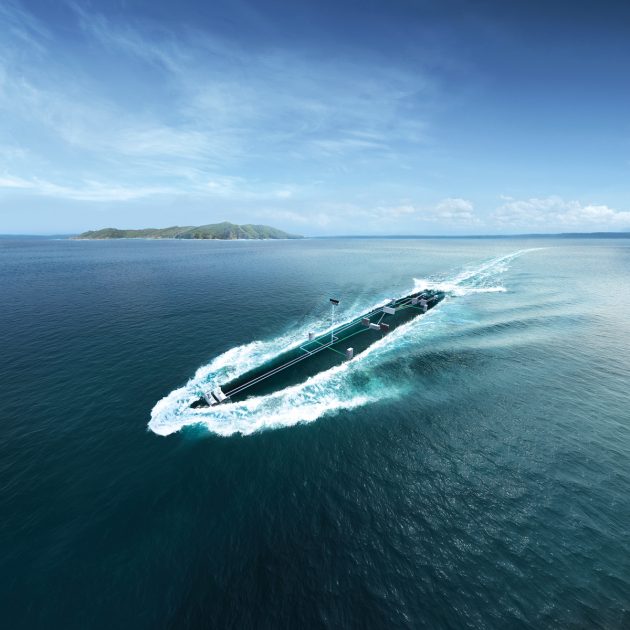
Connected offering.
Among alternative emission-free technologies, ABB is already well advanced in collaborative development of fuel cell systems for ships. Fuel cells are widely considered as one of the most promising
solutions for reducing harmful pollutants. Already today, this zero-emission technology is capable of powering ships sailing short distances, as well as supporting auxiliary energy requirements of larger vessels.
Environment requires cleaner shipping, how does technology respond?
Global pressures of climate change, emerging-market economic development and growing urbanization demand new and more environmentally sustainable ways to move people and goods. ABB
has become one of the world’s leading enablers of sustainable transportation for all modes, including marine vessels.
There are commercially available technologies that can enable reduced emissions and more sustainable shipping, such as shore power, energy storage, fuel cells and others.
How do you see the Northeast Passage developing? ABB opened an Arctic center in Murmansk and another one in Russia’s Far East?
In 2019, ABB has opened Marine Service Center in Russia in support of growing Arctic maritime industries. The center supports ABB’s ship power, propulsion and automation technologies and further expands service capabilities for ice-going vessels.
The new Marine Service Center builds on a decade of local ABB services in support of ice-going vessels and relies on a strong core of engineering expertise in Murmansk.
In 2009, ABB’s engineers operating from smaller scale service facilities in Murmansk supported 15 vessels featuring the group’s equipment; in 2019, the number of ships has exceeded 50, with projects covering over 100 Azipod® propulsion units. Responding to the needs of a growing customer base, ABB has expanded its service capabilities by opening a new, dedicated service facility.
Located in Murmansk, the world’s largest city above the Arctic Circle, the new center occupies 2,000 m2 in a purpose-built facility with its offices, electrical and mechanical testing areas, and a workshop served by overhead gantry cranes. The center also features a warehouse for Azipod® propulsion and electrical spare parts to ensure shortest delivery times and to further enhance responsiveness.

